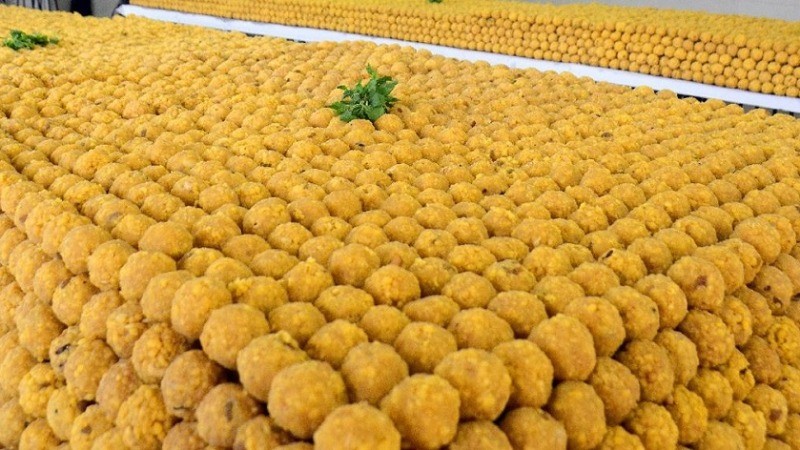
Jaipur: In light of the controversy surrounding the discovery of animal fat and fish oil in Tirupati temple laddus, Rajasthan’s Food Safety Department will conduct a special campaign to assess the quality of bhog and prasad in temples from September 23 to 26.
Under this initiative, samples of Savamani and regularly offered prasad will be tested. Pankaj Ojha, Additional Commissioner of the Food Safety Department, said, “This investigation will take place under the campaign ‘Shuddh Aahar, Milawat Par Vaar,’ initiated by the Chief Minister. We will check the quality of various food items at major temples where prasad is prepared daily.”
Currently, 54 temples in Rajasthan have applied for a Bhog Certificate. The campaign will not only evaluate the quality of prasad but also inspect hygiene standards. Relevant departments have been notified, and a dedicated team will oversee the campaign.
The Food Safety and Standards Authority of India (FSSAI) has implemented a certification scheme for bhog as part of its ‘Eat Right’ initiative. This program grants certificates to vendors selling prasad and food items at religious sites, ensuring compliance with food safety and hygiene standards.
So far, the Food Safety and Drug Control Department in Jaipur has registered 54 religious places for the Bhog Certificate. Notably, the Moti Dungri Ganesh Temple in Jaipur was the first to receive this certification. Prasad from temples holding this certificate assures adherence to the quality standards set by FSSAI.
The certification is renewed every six months following an audit, during which FSSAI prepares a report based on the temple kitchen's standards.
How Did Tirupati Temple Laddus Get Adulterated With Animal Fat?
Jagan Reddy Approaches High Court Over Tirupati Laddu Beef Tallow Allegations